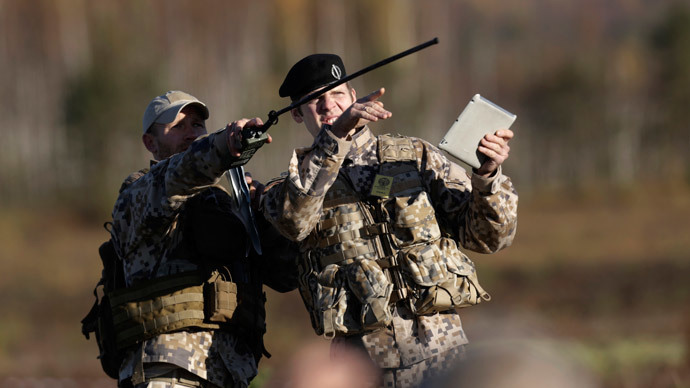More NATO troops in E. Europe meant to antagonize Russia

NATO is obviously pushing on the borders of Russia and its bases in Eastern Europe seem to be an offensive move to antagonize Russia, journalist Assed Baig, told RT.
RT:NATO'sEurope chief has asked the Pentagon to send more troops to Eastern Europe due to the situation in Ukraine and tensions with Russia. Why does he need them there?
Assed Baig: I think that we have to look at the wider context here that the Ukraine [crisis] has just started this, last year or so. But the plan from the US, especially specific Obama advisers was to create a NATO expansionist kind of policy and NATO reaction force. When you look at Ukrainian isolation it may seem that the recent events are triggering this. But what we are actually witnessing is a long-term plan of NATO expansionism. I think that many in the western media are missing the point of this.
RT:What impact would you expect the new troops to have? How is Russia likely to react?
AB: It is obviously a threat to Russia. Even before the Obama regime came in, Russia was taking a step back almost and trying to make peace with the West and NATO on the condition that Ukraine would remain neutral, that it would not host NATO bases, would not host NATO troops. This is obviously a move to antagonize Russia and seen as an offensive move rather than defensive one. If you look at a map of NATO bases across Europe it is NATO that is infringing and pushing on the borders of Russia - not the other way around. If anything, this will antagonize the situation even further. It is not a move towards peace.

RT:Politicians in the Baltic States have called for more NATO servicemen, but citizens have previously complained about the bad conduct of NATO troops placed there. What's the reaction likely to be in those Baltic countries to more soldiers?
AB: The politicians are obviously buying into the narrative that Russia is a threat to them. I think it is becoming very polarized. Many people realize that putting NATO troops on your soil doesn't help the situation, it makes it worse. If the people are complaining about the wild behavior of NATO troops they are not likely to react favorably to having these foreign troops on their soil. We may very well see people speaking up against the position of NATO, [against] the presence of NATO on their soil.
RT:Is the US likely to agree to send more troops to Eastern Europe under NATO?
AB: I think the US will probably agree to have troops that serve their purposes, serve their expansionist agenda. I think they will happily send troops there. But whether they were meant to do anything is another matter, I think it is more about co-opting States into the NATO expansionist agenda.
RT:NATO has already agreed to send forces to the Baltic States. Why the urgency now to send more?
AB: Essentially, we have been seeing a kind of new Cold War for a while now. But I think that the situation is somewhat different. The US is a bit spread out in terms of being wounded from Iraq, and they have been defeated, in Afghanistan. This is a key game for them. There has to be some sort of understanding and some sort of political dialogue. But it is going to happen when NATO is expending so much. I think the ball is maybe in Russia’s court now in terms of how they react to this latest move by the Western states.
The statements, views and opinions expressed in this column are solely those of the author and do not necessarily represent those of RT.
The statements, views and opinions expressed in this column are solely those of the author and do not necessarily represent those of RT.












